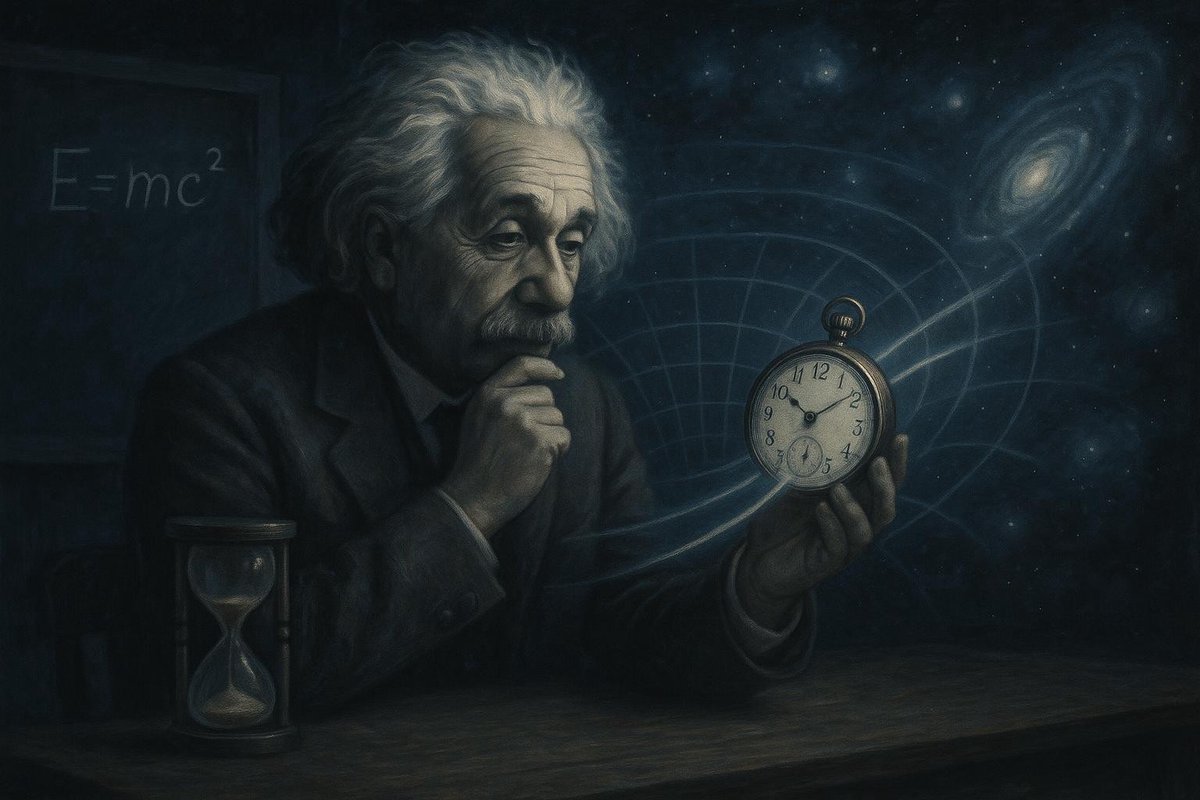
Unpacking the Question: Is Time Really Fluid?
Imagine watching a clock drifting through space, its hands spinning at a pace dictated not by human design but by the whims of the universe itself. This is not mere speculation but a cornerstone of our reality as unveiled by Albert Einstein. His theory of relativity challenged the rigid Newtonian notion of time as a constant, reshaping it into something fluid, elastic, and intertwined with the fabric of space itself. But what does this mean for our perception of existence?
Before Einstein, time was a reliable constant, ticking independently and uniformly across the cosmos. However, his revolutionary insight revealed that time could stretch, compress, or even loop, depending on gravity and speed. This paradigm shift compels us to reimagine time not as a straight line but as a dynamic tapestry woven into the universe.
- Newton proposed time as absolute and universal.
- Einstein introduced time as relative, entwined with space.
- Time can dilate under significant gravitational forces or high speeds.
Understanding time’s elasticity blurs the boundaries of past, present, and future, prompting us to wonder: If time is not a fixed dimension, how might this alter how we live, dream, and remember?
Surprising Facts: Time Dilation and Its Evidence
Consider the peculiar tale of identical twins, where one embarks on a journey through space at near-light speeds and returns younger than the other. It’s more than science fiction; it’s time dilation, a fascinating prediction of relativity.
- Time dilation has been confirmed through atomic clock experiments.
- Clocks on satellites tick faster than those on Earth due to weaker gravity.
- Astronauts age slightly slower due to high-speed travel.
This effect, though imperceptible in daily life, is essential for technologies like GPS, which must adjust for time discrepancies to provide accurate navigation. Einstein’s theory is not just a theoretical curiosity; its implications ripple through our technological advancements and philosophical musings.
As we grapple with these notions, we are left with captivating questions: If our experiences of time can differ based on our cosmic trajectory, what does this say about the stories we tell, the lives we lead? Are we, in essence, time travelers on a journey defined more by perception than chronology?
What Science Says: The Mechanics of Relativity
In the early 20th century, the scientific world was ripe for revolution. The prevailing theories could not account for the peculiarities of light and electromagnetic forces. Enter Einstein, who in 1905 and 1915, proposed the special and general theories of relativity, respectively.
- His insights stemmed from the constant speed of light.
- In special relativity, time and space are linked in a four-dimensional continuum.
- General relativity describes gravity as the warping of this spacetime fabric.
These theories provided a new lens for understanding the universe, resolving inconsistencies in classical physics and revealing a cosmos where the fabric of existence is malleable. The profound elegance of Einstein’s equations continues to guide explorations into black holes, cosmology, and quantum mechanics, underscoring our interconnectedness with the universe.
In embracing the fluidity of time and space, we are invited to ponder our place in this vast expanse: Are we, as Einstein suggested, part of the universe observing itself?
What It Means for Us: Philosophical Reflections
In a world where time is relative, how do we measure a life well-lived? Einstein’s revelations compel us to question the essence of our temporal existence. If time is not fixed, are our past and future as concrete as we believe, or are they mere perceptions molded by our movement through space?
- The fluidity of time invites reflection on memory and anticipation.
- Philosophers argue time is a human construct, a narrative tool.
- Our sense of ‘now’ is fleeting, ever-shifting with our consciousness.
As we traverse this continuum, it becomes clear that our existence is less about the ticking clock and more about the experiences that fill the spaces in between. The relativity of time invites us to live more fully, to appreciate the moments that, though fleeting, contribute to the tapestry of our lives.
As Einstein eloquently put it, “The distinction between past, present, and future is only a stubbornly persistent illusion.” Are we, therefore, co-creators of our reality, shaping time through our actions and perceptions?
Fuel Someone Else’s Curiosity: If this exploration has sparked your imagination or stirred a question within, why not share it with others? Encourage a friend to ponder the mysteries of time, or discuss with family over dinner. Let’s nurture a world where curiosity leads the way and critical thinking is a part of our daily dialogues.

Leave a Reply